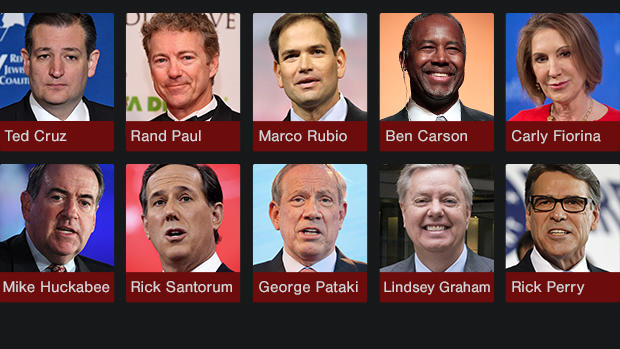Christie facing pressure from Dems to quit his day job
Barely a week after jumping into the presidential race, New Jersey Gov. Chris Christie is facing pressure from Democrats at home to quit his day job -- but he's not the only sitting governor who's faced criticism while running for the White House.
In New Hampshire over the weekend, Christie found himself facing questions not about how he would run the country, but about how he can run New Jersey from the campaign trail.
"I've said many, many times before, I can walk and chew gum at the same time, and I'll be able to do that," Christie said.
But state Democratic lawmakers disagree, reports CBS News correspondent Jan Crawford.
"New Jersey needs a full-time governor to deal with the huge problems we have," New Jersey state Sen. Loretta Weinberg said.
Democrats in the legislature are introducing a bill that would force Christie to resign.
The bill has no chance of becoming law. Even if it passed, Christie could veto it. But the dust-up highlights the unique difficulties faced by governors trying to run a state and a campaign.
- Chris Christie: Walk away from Iran nuclear talks
- Christie's last question on 2016: "Do I want to do it?"
- Five things to know about Chris Christie
In this year's crowded Republican field, Christie is one of four sitting governors eyeing the Oval Office. The others are Louisiana's Bobby Jindal, Wisconsin's Scott Walker and Ohio's John Kasich.
But it's been done countless times before. Former Presidents Bill Clinton and George W. Bush are the most recent successful examples.
The challenge is keeping voters happy back home.
"If the voters don't think you can, then they're not going to be all that happy about you," PolitiFact Deputy Editor Louis Jacobson said.
Jacobson has studied whether governors running for higher office are "on thin ice."
"It is definitely a political risk for the candidate," Jacobson said.
That's because voters don't always like their governors paying so much attention elsewhere. Democratic nominee Michael Dukakis, a three-term Massachusetts governor, saw his approval ratings tank after his failed bid, as did Texas Gov. Rick Perry more recently.
Former Vermont Gov. Howard Dean briefly considered running for president in 2000. When word got out, his approval ratings in the state plummeted.
"People didn't think I should be gallivanting around the country if I was being paid by the taxpayers of Vermont. So this is not a Republican-Democratic problem. This is what happens when you have to take this kind of time to run," Dean said.
Dean waited until 2004 to run, after he was no longer governor. But he thinks legislation to block sitting governors from giving it a shot is a bad idea.
"My bottom line is, if I were a Democrat in a New Jersey legislature, I don't think I would vote for this," Dean said.
"I'd just say, 'If you want to change it, probably right in the middle of someone's presidential campaign is not the right time to change it,"' he added.
Dean said the key is having support back home, such as having the lieutenant governor step in when necessary. Or of course, just win the White House -- then you don't have worry about your popularity when you go back home to resume your duties as governor.
